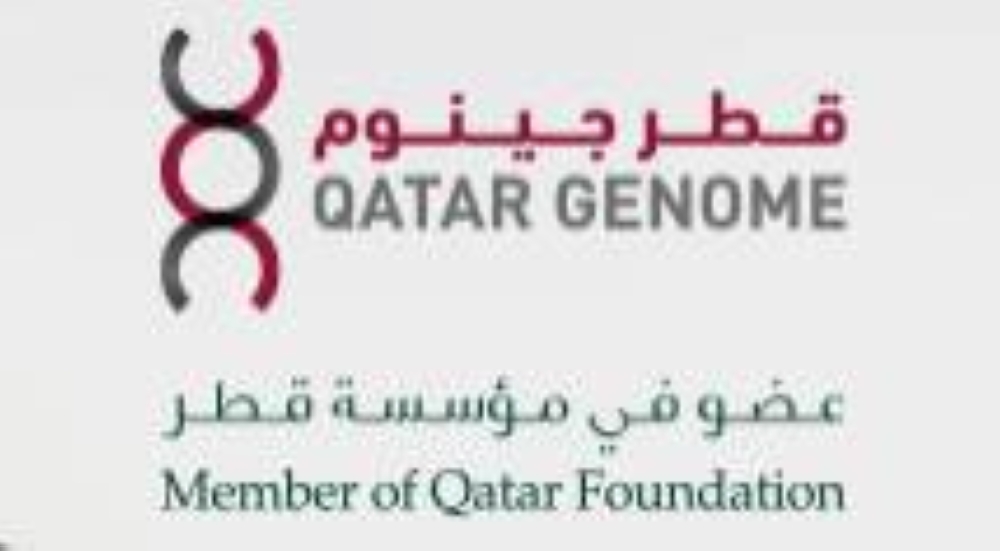Director of the Qatar Genome Programme (QGP) Dr Said Ismail has revealed that QGP has conducted genome sequencing for 30,000 citizens and 3,000 Arab residents, with the objective of creating the first comprehensive Qatari reference genome.
QGP is an affiliate of Qatar Foundation for Education, Science and Community Development.
In special remarks to Qatar News Agency (QNA), Dr Ismail said the genome term is used to describe a combination of genes that exist in human body, as a genome can be considered a very detailed code that provides accurate information about individuals, such as human appearance and how his body functions, as well as the genetic mutations he/she carries making him/her susceptible to certain diseases.
He outlined that the genome science is meant for studying all genes that form the organism giving the opportunity to predict diseases and accurately diagnose and treat them individually, adding that when precision health care is used, the first step in identifying individuals' genome sequencing is to figure out the arrangement of over 3bn base pairs that constitute together the human genome, while differences in those base pairs are considered vital in explaining variation between individuals.
The genomic information is one of the most important components of precision health care, which supports the transition from traditional health care approaches to customised personal care, underlining that Qatar witnesses the real application of the precision health care on the ground, especially in pharmacogenomics and oncology dedicated to the diagnosis, treatment and study of cancer, whether through utilising genome sequencing to identify persons who are most susceptible to cancer, early detection or with the aim of choosing the most appropriate cures for cancer for a certain individual to be customised based on his/ her genetic structure, Dr. Ismail said.
Precision medicine is being applied in Qatar to attain a more proficient diagnosis of rare diseases that are commonly caused by genetic mutations, he added.
Director of the Qatar Genome Programme pointed out that any mature person (18-year-old at least) whether he or she is a citizen or a resident living in Qatar for a period not less than 15 years can have his/ her genomic sequencing through engaging in the study carried out by Qatar Biobank, member of Qatar Foundation, by filling the participation form.
He noted that the first step towards benefiting from precision health care is to identify their genome sequencing and this is what Qatar Biobank and QGP has been focusing on for the five past years, which has been tirelessly working on not only on behalf of Qatar, but for the region and the Arab world as well, to add the information that is not available in the global genome database.
The key components of Qatari referential genome are identified and there is best understanding of genetic risk factors of Qatari and Arab inhabitants which play a tremendous role in diagnosing some diseases and deal with them at the early stages, Dr. Said Ismail said.
Over 50% of rare diseases affect children and 30% of them die before the age of five due to lack of diagnosis and cure options, while genome medicine is a fundamental factor in detecting causes of rare diseases with the subsequent description of their appropriate cure in the future, he outlined.
Dr Said Ismail indicated that precision health care goes beyond the realm of traditional concept of medicine that cures any emerging diseases, whose significance is predicated on predicting the protection and cure, outlining that the major objective of precision health care is to promote and maintain health to the greatest extent possible.
He pointed out that the most applied medical treatments and health care protocols have been precisely designed for all people without focusing on individual needs, explaining that such an approach with the benefits it provides is not entirely beneficial for all people, since there are many factors that affect the individual's health, including the place they live in, genes, medical history of family, lifestyles, and environment.
In concluding his remarks, Dr. Said Ismail affirmed that precision health care reimages the medicine and focuses on prediction of diseases with accurate prevention and cure, adding that it aspires to optimise well-being and health through pursuing strategies that are dedicated to each individual and identifying the most efficient cures. (QNA)
Qatar
Qatar completes genome sequencing of 30,000 citizens
*Database to help revoluntionise precision medicine healthcare


